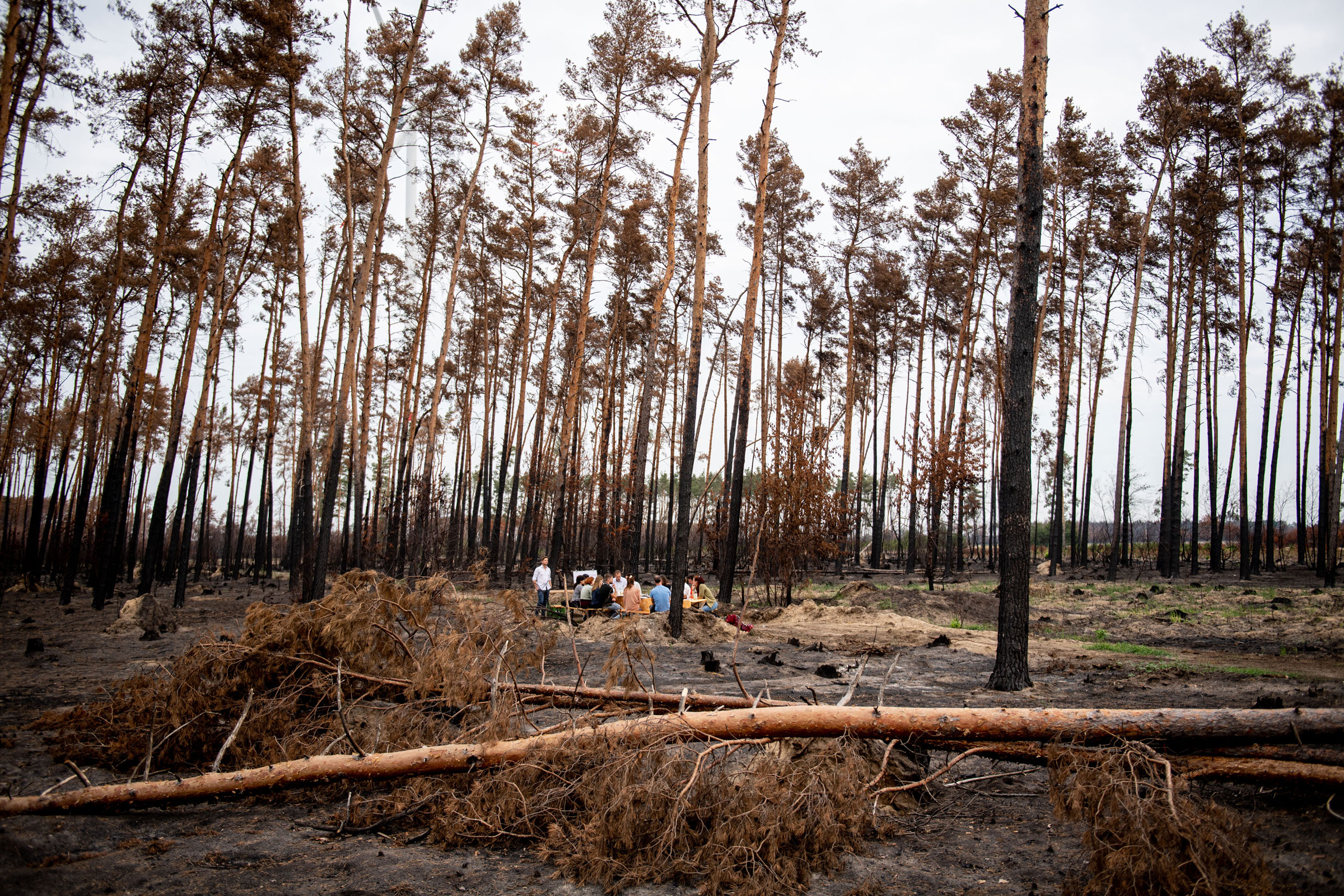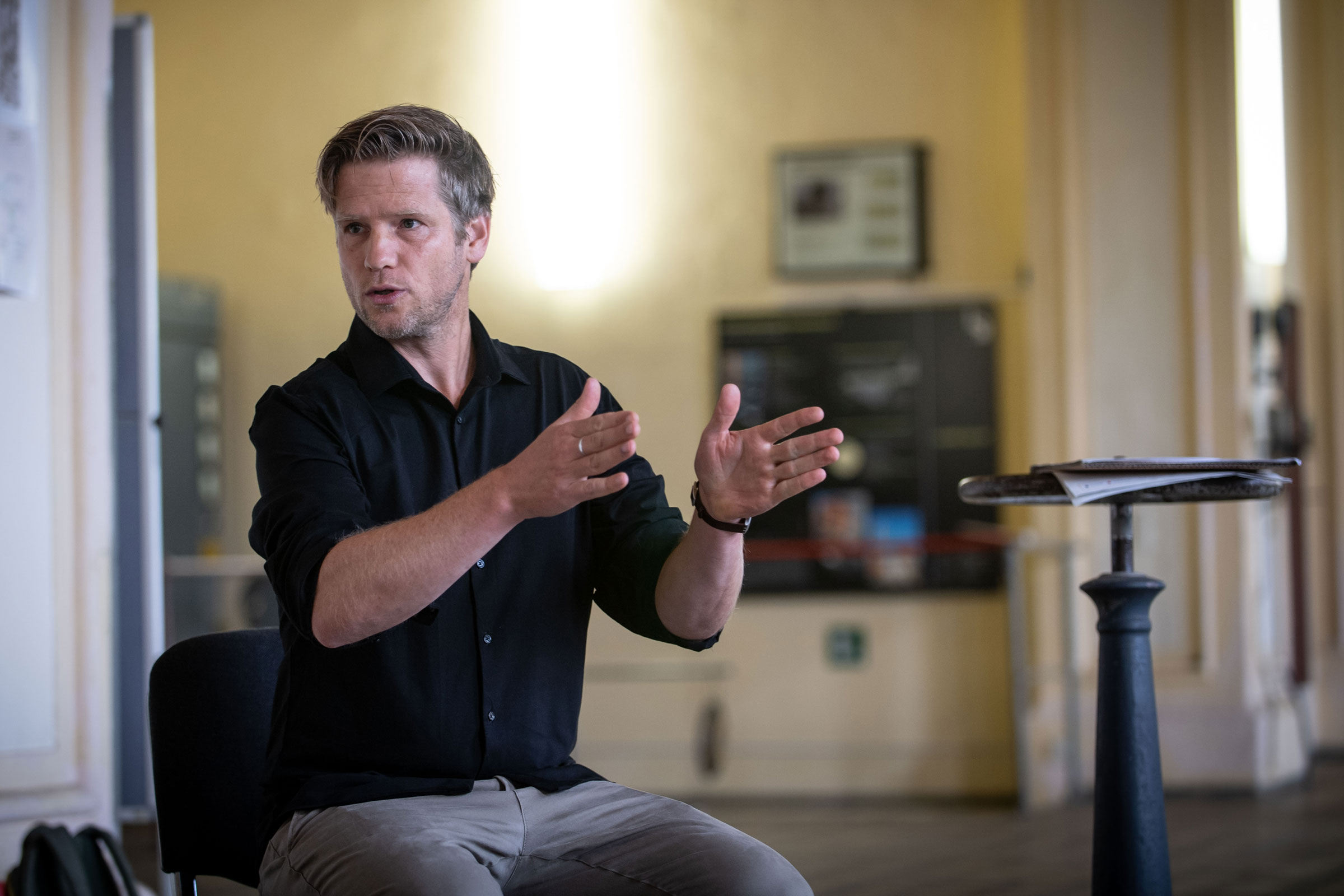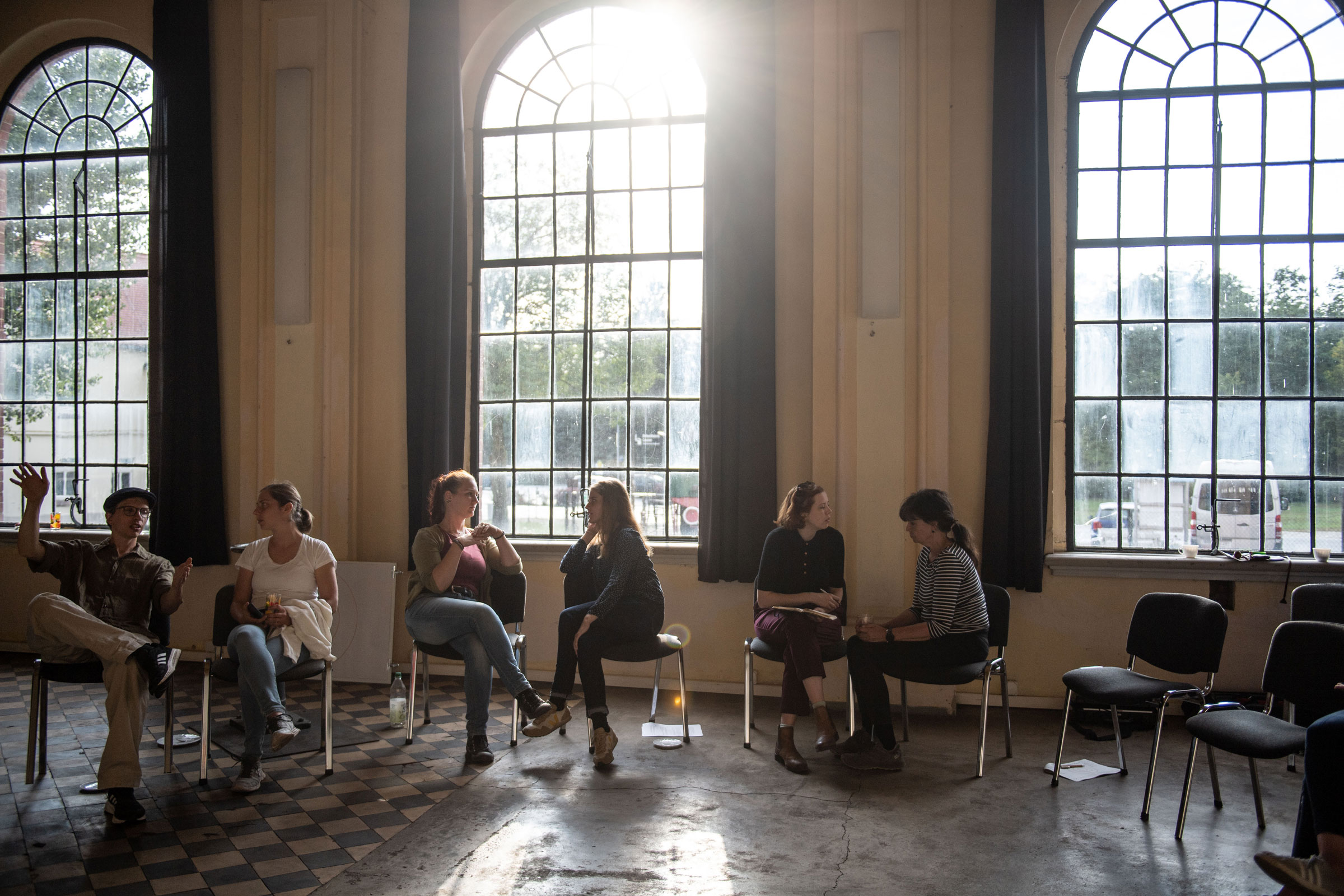r•evolutionary ideas enable organisations to achieve their revolutionary goals using an evolutionary approach.
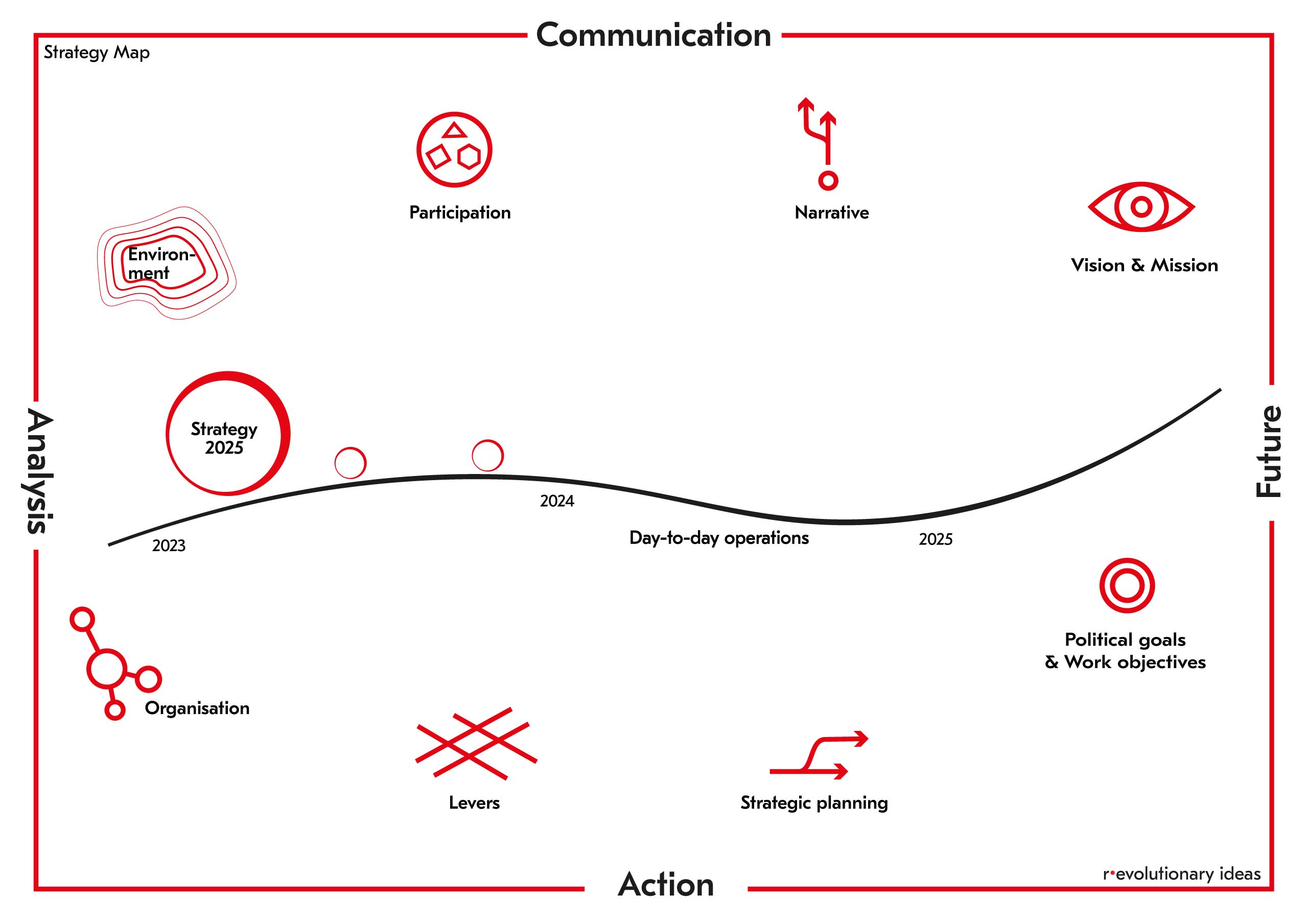
The primary tool we use is the Strategy Map. It offers tailored solutions for organisations active in the political realm.
By using a Strategy Map, you start with the big picture. Individual tools can be implemented and adapted as needed. This approach results in prototypes that you can test at an early stage and further develop.
After their development (version 1.0), strategies are conceptualised as evolutionary systems. When external circumstances change, such as crises or windows of opportunity, the strategy is amended through a short adaptation cycle (version 1.1).
The Strategy Map provides a juncture where strategy, organisational development and leadership can meet. Fundamental change requires openness and clarity on three of these levels.
The services r•evolutionary ideas provide include introducing the Strategy Map, consulting, coaching and facilitation.
Dominik Zahrnt launched r•evolutionary ideas in 2015. His work has led to a consulting approach that brings in collaborators and clients to develop and implement joint strategies. As of 2020, virtual whiteboards have expanded the tools for evolutionary strategies.
My congenial partner is the designer and artist Johannes Tolk. Together we continue to develop the Strategy Map and other strategy systems like Mapping the Interplay between Nature and Economy – MINE and Kleinstadt Klimafit.
Daria Czarlinska of Sinnergie contributes ideas for mindfulness and systemic coaching. She works with the senses on an internal dimension, such as our joint coaching programme for the Studienstiftung.
My qualifications:
Degree in Economics (HEC Lausanne; Universidad Pompeu Fabra, Barcelona).
Master’s and PhD in Political Philosophy, University of Edinburgh. Focus on the interaction between theories global justice and motivation.
Collaboration with IFOK, consulting on strategy and participation.
Moderation in German, English, Spanisch and French.
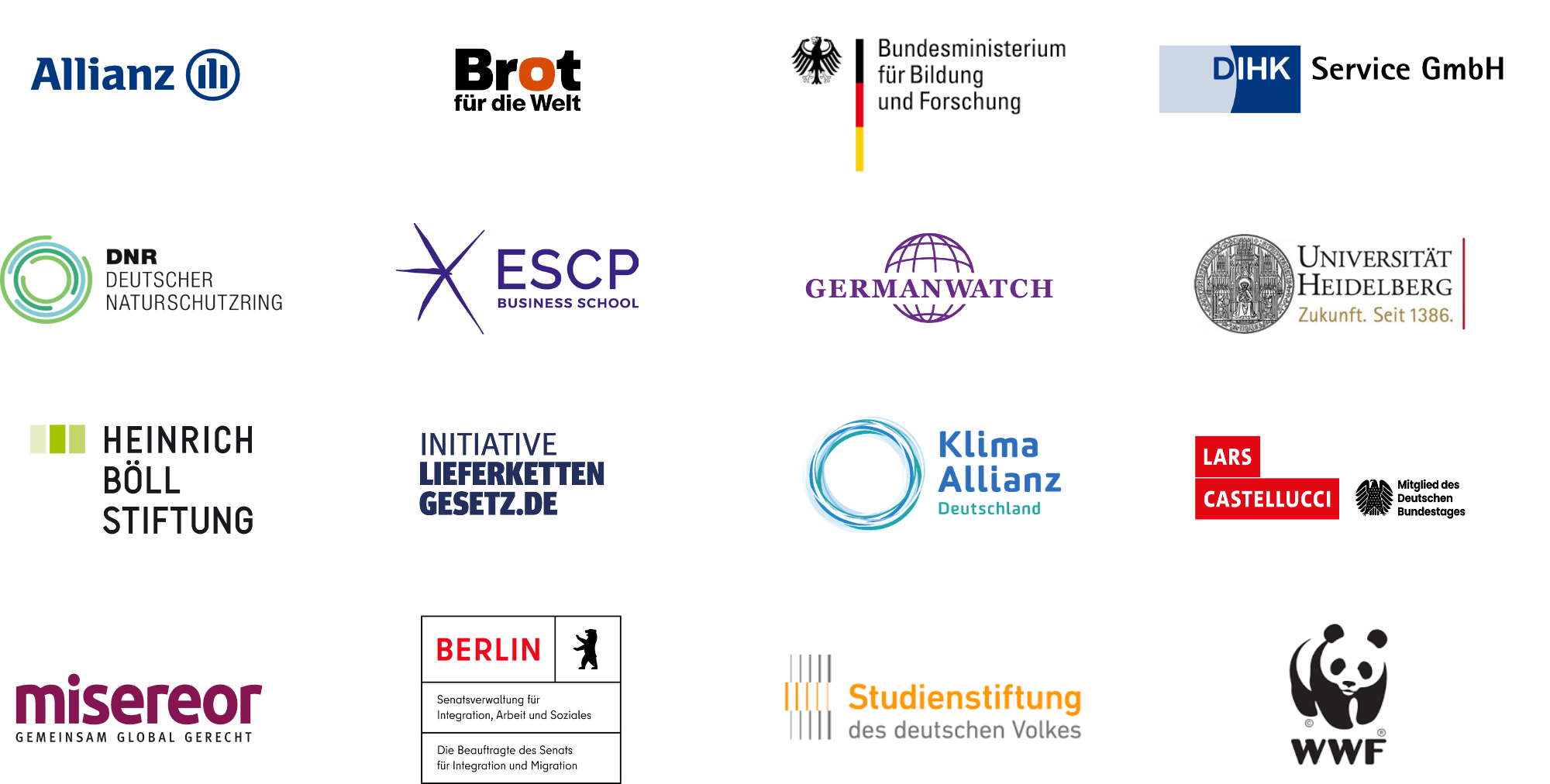
Academic and Communication
Zahrnt, Dominik & Tolk, Johannes & Mitchell, Nicole (2022) GoingVis: Erfahrungs- und teilhabeorientierte Klimaanpassung in Kleinstädten, Berlin Institut für Partizipation. (Link)
Guske, Anna-Lena & Jacob, Klaus & Hirschnitz-Garbers, Martin & Peuckert, Jan & Schridde, Stefan & Stinner, Sven & Wolff, Franziska & Zahrnt, Dominik & Ziesemer, Florence. (2019), Stories that Change Our World? Narratives of the Sustainable Economy, Sustainability. (Link)
Faber, M., Petersen, Th., Frick, M., Zahrnt, D. (2018), MINE – Mapping the Interplay between Nature and Economy. A digital gateway to the foundations of Ecological Economics. University of Heidelberg, Department of Economics. Discussion Paper Series No. 658. (Link)
Zahrnt, Dominik & Zahrnt, Angelika (2016): Landkarte Suffizienzpolitik – Sehen, gehen, teilen, Ökologisches Wirtschaften 3/2016. (Link)
Guidelines for Strategy and Participation
Speil, Karina & Zahrnt, Dominik / IFOK (2015): Integration von Klimabildung in kommunale Klimaschutzkonzepte, Agentur Bildung für Nachhaltige Entwicklung, NRW. (Link)
Bimesdörfer, Kathrin; Richwien, Martina; Schrögel, Philipp; Zahrnt, Dominik (2012): Werkzeugkasten Dialog und Beteiligung. Wirtschaftsministerium NRW.
Büttner, Hannah; Kneipp, Danuta; Zahrnt, Dominik (2011): Kommunen gehen voran – gehen Sie mit! Ein argumentativer Kompass für kommunale Nachhaltigkeit. Umweltbundesamt. (Link)
Participatory Policy Design
Banthien, Henning & Zahrnt, Dominik (2013). Stakeholder-Dialoge in der Praxis. In: Georg Schreyögg (Hrsg.): Stakeholder-Dialoge. Zwischen fairem Interessenausgleich und Imagepflege. LIT Verlag Dr. W. Hopf, Berlin, S. 63-79.
Banthien, Henning; Gallmeier, Ute; Zahrnt, Dominik (2013): Stakeholder proaktiv beteiligen. Verantwortung Zukunft – Das Magazin, 4/2013, F.A.Z.-Institut für Management-, Markt- und Medieninformationen, S. 18-20. (Link)
Meister, Hans-Peter & Zahrnt, Dominik (2013): Die Weisheit und die Kreativität der Vielen: Infrastrukturprojekte mit Beteiligung und Dialog voranbringen, Kommunikationsmanager 4/2013, F.A.Z.-Institut für Management-, Markt- und Medieninformation, Frankfurt, S. 72-74.
Banthien, Henning & Zahrnt, Dominik (2012): Der strukturelle Wandel der Politikgestaltung: Bürgerbeteiligung als Querschnittsaufgabe der Zukunft. In: Bündnis90/Die Grünen (Hrsg.), Grüne Stadt der Zukunft. Dokumentation des Metropolenkongresses vom 12. März 2011, Berlin, S. 57-62. (Link)
Motivation and Global Justice
Zahrnt, Dominik (2013): The Conditional Feasibility of Global Egalitarian Justice. Res Cogitans, vol. 1, 69-93. (Link)
Zahrnt, Dominik (2012): Singer’s Principle and the ‘Ought-Implies-Can’ Criterion: ‘Are We All Heroes in Waiting’?, Unpublished Working Paper. (Download)
Zahrnt, Dominik (2010): An Enquiry into the Effectivenss and Feasibility of Theories of Global Justice. PhD Thesis. Edinburgh: University of Edinburgh Library. (Link)
Zahrnt, Dominik (2007): Theories of Global Morality and Normative Positions of NGOs – Comparing Pogge and the World Development Movement, Central and Northern England Graduate Conference (CANE), Conference Paper. Newcastle.
